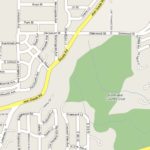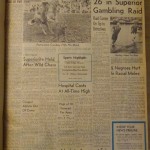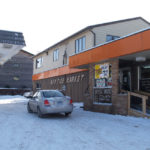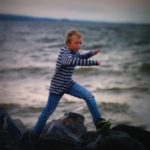Entangled lives: Poles and Jews; Europe and Africa
University lectures showed me quite a bit about the entangled lives of the past that shape our present. Last Thursday, Dr. Deborah Petersen-Perlman gave a historical tour of Poland. She opened with a video that shows the borders of European nations, beginning hundreds of years before the invention, even, of the nation-state.
Poland expands, contracts, vanishes. The most recent vanishing roughly corresponds with WWII, and so correlates to the most complicated dimension of Polish history.
It was in these years that millions of Jewish Europeans [Jewish Germans, Jewish Poles, and more] were murdered in Poland, and Poles were murderers, accomplices, bystanders. This period in Polish history is painful enough for many contemporary Polish citizens, an “Institute of National Remembrance law” states:
The law arises at the end of a decade in which the Polish people have struggled with their own complicity, their own responsibility, for the atrocities of the Holocaust. I’ve been struggling with it, too, reading Jan Gross’s Neighbors, The Neighbors Respond [a collection of essays welcoming and denying Polish responsibility], and Anna Bikont’s The Crime and the Silence. My great-grandparents and grandparents were Kaszub Poles living in Milwaukee; it may be but for the blessing of immigration that I am not descended from murderers.
The talk was engaging; Petersen-Perlman is chair of the Baeumler Kaplan Holocaust Commemoration Committee and an associate professor in UMD’s Department of Communication; she knows many things about this complicated history. She will share some of the things she knows on a trip to Poland later in the Spring.
The trip also promises an introduction to Polish culture. I grew up Polish in late 20th Century America, subject to “Polack Jokes,” to being isolated by virtue of the number of consonants in your name, and to being teased for beloved, unusual foods. But to be Polish is also to be connected to a beautiful Polish culture and history.

Visit this site to learn more about the trip.
Monday, Professor Zakes Mda’s public lecture [entitled “Unsilencing an Occluded Cultural and Historical Heritage”] was a primer on African history for people like me, whose knowledge of African history was mostly a knowledge of European contact with Africa.


Three takeaways from that lecture:
- Europeans have a singular trope that carries them through most contact problems. The myth that a land is empty allows them to claim it with a clear conscience. Mda spoke about moments in South Africa where Europeans denied the existence of indigenous peoples, despite discoveries of cultural wonders that demonstrated otherwise. Similarly, scholars in the Israeli-Palestinian conflict made arguments about the emptiness of the land that would become Israel. And Minnesota artist Nik Nerburn made similar claims about the pop culture role of the Paul Bunyan myth: the myth of wide open Minnesota forests shaped by Paul Bunyan allows Minnesotans to forget the atrocities done to first nations peoples living here before contact.
- The lecture promised to teach me about art, and it did, from bead work that served both aesthetic and communicative functions to the controversies about European nations refusing to loan art to African nations. That art was looted from the African nations centuries earlier.
- That said, despite the slow, deliberate delivery in the lecture, necessary for teaching me things I had no knowledge of, at all, ever … What stuck, what stuck with me was still the controversies that come from contact with European nations. It’s not Dr. Mda’s fault that I retained only the things that fit into the schema for African history I had before I entered. That’s my fault.
I’m just sad that I remember more about the Hottentot than I remember about the wonders I had never seen before. I need to work harder to fix this, starting with a greater appreciation of and further reading about the Kingdom of Mapungubwe.
I want to thank my colleague and friend Hilary Kowino for his work in promoting this lecture.
My brain was stretched this week, by local expertise and by internationally respected visitors.
Recommended Links:
Leave a Comment
Only registered members can post a comment , Login / Register Here














No Comments